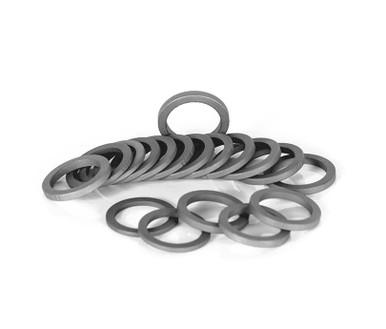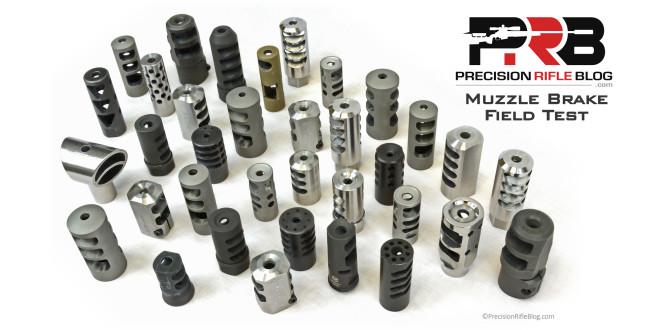That also makes sense. Thanks! So basically I don't need to buy brakes with QD suppressor attachments unless I plan to shoot the rifles unsurpressed? And once I have a suppressor... Why would I ever shoot unsuppressed? Maybe travel out of state or something
The QD mounts do have the virtue of usually being "quick connect". Personally that's not something that really matters to me other than on my ARs there seems to be less carbon build up in the connection and the threads are much more coarse so they clean easier. The active spring-retention design does keep them attached better when they get hot - different metals expand at different rates so a steel brake inserted into an aluminum or titanium tube have flex in the joint as heat cycles through the parts.
Shooting subsonic 300 BLK the powder residue builds up on the brake and the first baffle somewhat the same, so while there might be a "sacrificial baffle" aspect to a brake unless you're shooting something that is actually hard on the baffle material like short barreled 5.56 I'm not sure it really matters. My longer barreled magnums create less residue than short barreled small cartridges. By saying "hard" on the can I mean the shot applies significant energy in terms of heat and pressure, which are the real limits to what suppressors can do effectively.
I chose direct thread suppressors because there's one less set of threads to match together with them, but practically I've never had any difficultly aligning a brake-mounted can to the bore. My argument for direct thread is minimization argument - might not really matter, but one less thing is one less thing. One-piece direct thread TBAC, TBAC DB brake mount, SiCo threaded insert, and SiCo ASR mounts have all gone together easily. I use the Accu-Washer system on ARs and every brake has aligned correctly when I put the correct thickness in. The washers are a two-for-one deal, they let you clock the brake correctly with less torque on the barrel threads, and they're solid/not a crush washer so the brake alignment is more consistent. In a distant part of my life I worked on engines, and you absolutely can yield a fastener by over-torqueing - I've removed a headbolt from a Ford 6.0 diesel with my bare hand because the owner stacked up a tuner and blew out the headgasket by stretching the TTY bolts the engine was designed to run. I have no desire to go down that road or deal with damaged threads on a barrel so yes, I use a torque wrench.
Accu-Washer®: Perfect muzzle brake alignment with one shim. Eliminates multi-shim issues. Ensures accuracy and safety.

precisionarmament.com
Brakes do have a purpose. I find it easier to stay in the scope on several of my rifles using brakes compared to bare muzzle or a suppressor, but there are significant factors in terms of how the shooter runs the rifle that figures in to that. When I shoot braked I prefer to shoot a purpose-designed brake rather than a mutli-function brake. Brake designs that fit into the confines of a suppressor don't match designs that have tested to be more effective at recoil mitigation. I use the EC Tuner brake on my competition rifle and compared to 1) a bare muzzle, 2) the factory radial brake the rifle came with, and 3) an Omega 300 it reduces
perceived recoil the most. A lot of that is mental though, so your experience will be different than mine. Running a suppressor with double-ear pro also reduces perceived recoil for me - I did a lot of academic reading on it as to why, but I think the ultimate answer is loud sounds make me flinch in general so more ear pro helps me. It sounds crazy probably, but with plugs and muffs on I swear I hear/feel something through the rifle as the trigger breaks, that really defined glass-break trigger feel just the barest-split-second long enough to know the sight picture is correct (probably means my lock timing is all screwed up

). A critical part of muzzle brake design is keeping the shooter in a pocket where the blast doesn't him them. Why you would not want to be in the blast area is a very easy thing to experience first-hard - just stand by someone shooting braked, then stand behind them.
This is the first post in a series that will cover the results from an epic muzzle brake field test....

precisionrifleblog.com



